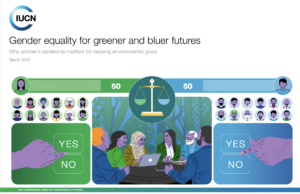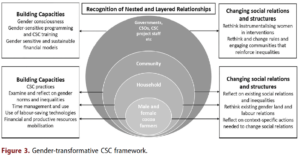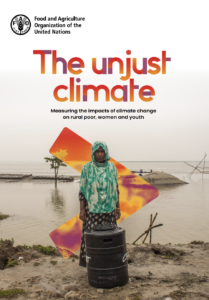Women in developing countries are domestic water managers and therefore can be regarded as the primary beneficiaries of water supply project, particularly domestic water supply services (DWSSs). Globally, women are active in water supply policymaking, planning and implementation. However, women are often excluded from water management activities; this can result in the failure of water projects. Research to date shows that women’s exclusion from water management processes stems from top-down approaches and traditional norms and gender differences. The work described in this research involved an examination of the effectiveness of DWSS policies implemented in rural Vietnamese communities, and was designed to produce an understanding of women’s roles and responsibilities in water management, specifically within the Vinh Phuoc community of the Mekong Delta of Vietnam. The research found that women participation in Vinh Phuoc was greatly restricted in the water management and in the public sphere in general. Also, it sought to reveal whether women are involved in water management activities and the roles they play in achieving final outcomes.
Authors: Nguyen Van Thai and Jose Roberto Guevara
Source:Asia-Pacific Journal of Rural Development



